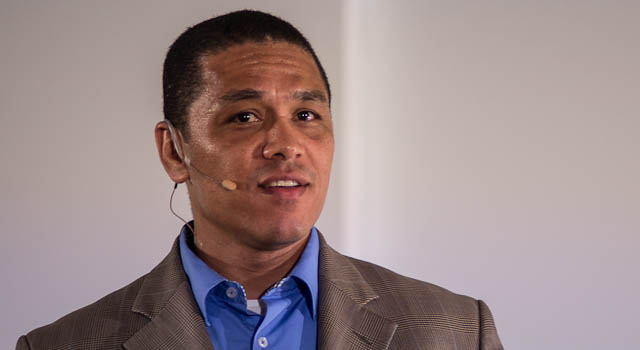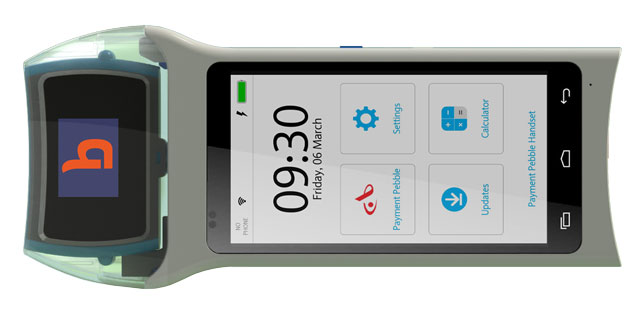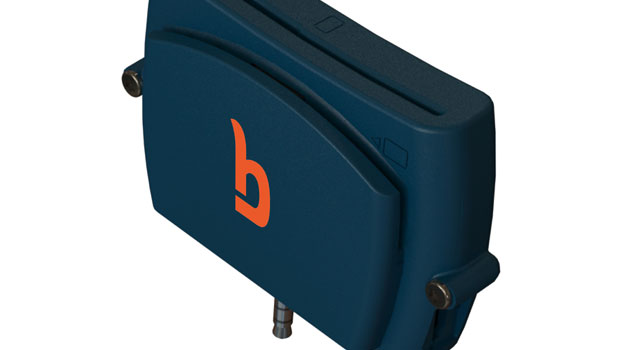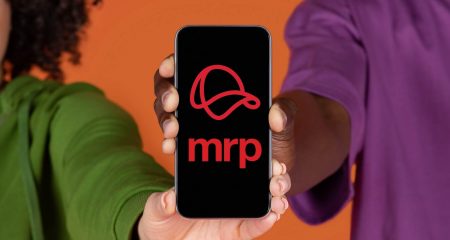
ThumbzUp, the local developer of mobile point-of-sale (M-POS) systems available in South Africa through Absa and in Australia through ANZ, is on the verge of signing significant new deals that will take it into the US and Southeast Asia.
TechCentral has established that international payments specialist Visa recently acquired a minority stake in the company, which was founded by South African technology entrepreneur Stafford Masie. The parties are not disclosing the value of the deal.
ThumbzUp makes the Payment Pebble and Payment Blade M-POS terminals.
Masie this week confirmed the Visa investment to TechCentral and said it is already paying off, helping the company get into the door of significant new potential international clients and partners. (Entrée Capital remains an investor in ThumbzUp.)
The fast-growing start-up, which has now established a global head office in London — Masie will remain based in South Africa — will now focus most of its energies on capturing opportunities in North America and Southeast Asia.
“It’s very important when playing with larger players, especially internationally, that you have someone like Visa on your side,” said Masie.
The deal gives ThumbzUp access to Visa’s “ecosystem”, he said, opening up vast new markets for the company.
It has already had a several big successes in South Africa, through Absa. It’s M-POS terminals are available in Mr Price stores around the country, for example.
The company is now introducing new versions of its products.
The Pebble 2, with hardened Gorilla Glass, is the successor to its standalone M-POS device that connects to a user’s smartphone that allows for chip-and-Pin, swipe and contactless payments (using near-field communication technology).
The Payment Blade 2, which includes an integrated smartphone in a unibody design, now has a more powerful processor, cameras, bigger screen and improved battery, SD card slot, externally facing Sim card slot (in addition to an internal Sim) and more storage capacity.
There’s even a clip-on scanner available for scanning QR codes and bar codes.
The new Blade supports both versions of the Pebble. It runs a derivative of Android developed by ThumbzUp and has no real functional use outside of payments.
Masie said ThumbzUp can give customers access to their own app store for the Pebble, along with full device management.


Units sold in South Africa are configured against an Absa-defined mobile access point name, or APN, making it behave like a 3G-capable Kindle e-reader.
“You switch it on and it just connects, delivering access for free to the merchant,” he explained.
Will ThumbzUp look to sell the device through other South African banks?
“The return on effort is greater in the northern hemisphere,” Masie said. “We are doing well with Absa. We are the biggest [M-POS provider] in South Africa in terms of device footprint and transaction volumes. Oh, and we are number one in Australia in our category.
“We are now talking to the biggest retailers in the world. We have been travelling around the world, sitting in offices of the CEOs of some of the largest retailers in the world. We will probably go live with two major banks in Southeast Asia and the US soon.”
Masie said that despite the internationalisation effort, ThumbzUp will continue to manufacture the Payment Pebble devices in South Africa. The smartphone component of the Payment Blade devices is made to contract order in China, with the devices assembled locally.
To date, ThumbzUp has shipped close to 50 000 products to its bank clients.
In the longer term, Masie would like to get payment devices in the hands of end-user consumers.
“Uber speaks to where we are going to as the world. And there’s no reason this can’t be a bitcoin-enabled device on the edge of the network,” he said.
“We will have something to say about bitcoin in the near future. We already support Apple Pay, Samsung Pay, contactless payments, QR codes, mag stripe, chip and Pin… It’s a universal payment experience. And we think bitcoin is pretty cool, too.” — © 2016 NewsCentral Media




